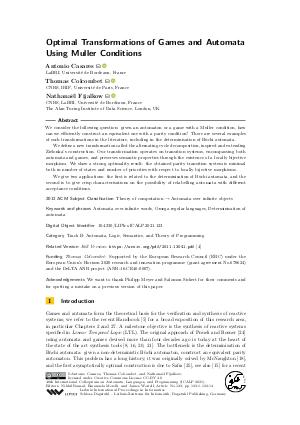LIPIcs.ICALP.2021.123.pdf
- Filesize: 0.77 MB
- 14 pages

 Creative Commons Attribution 4.0 International license
Creative Commons Attribution 4.0 International license




Feedback for Dagstuhl Publishing